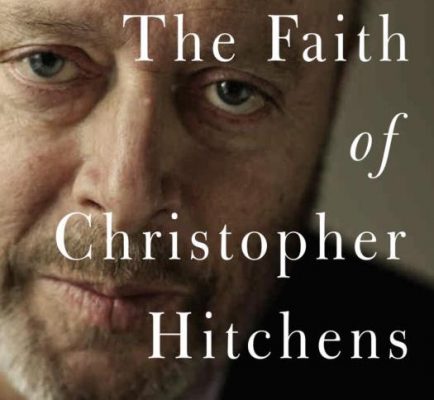“The Faith of Christopher Hitchens: The Restless Soul of the World’s Most Notorious Atheist” by Larry Alex Taunton. Nelson Books (Nashville, Tennessee, 2016). 224 pp., $24.99.
When Christopher Hitchens died of esophageal cancer at the age of 62 in 2011, he was famous as a left-wing polemicist who argued passionately for atheism.
Author of the best-selling 2007 book “God Is Not Great: How Religion Poisons Everything” and many other books as well as numerous essays in publications such as Slate, The Nation, The Atlantic, London Review of Books, The Times Literary Supplement, Vanity Fair and New Statesman, he relished debate. The Englishman’s acerbic critique of religion even extended to Blessed Teresa of Kolkata, whom he famously derided as “a fanatic, a fundamentalist and a fraud.”
Hitchens maintained to the end that his chance of having a deathbed conversion was slim. In fact, he seemed to take pains, after he knew he was dying, to disavow any such metamorphosis.
In a 2010 interview with The Atlantic’s Jeffrey Goldberg, Hitchens said, “In the event of anybody hearing of even a rumor of such a thing (his deathbed conversion), it would not have been made by me. The entity making such a remark might be a raving, terrified person whose cancer has spread to the brain. I can’t guarantee that such an entity wouldn’t make such a ridiculous remark, but no one recognizable as myself would ever make it.”
But his friend Larry Alex Taunton’s book “The Faith of Christopher Hitchens” offers a different and surprising perspective.

Taunton, who founded and directs Fixed Point Foundation, a nonprofit in Birmingham, Alabama, that publicly defends Christianity, was one of several staunch evangelical Christians such as Francis Collins and Douglas Wilson who enjoyed warm friendships with Hitchens. Taunton and Hitchens publicly debated each other, but also vacationed together and even took two long road trips together during which they read and discussed the Gospel of John.
While publicly, Hitchens never wavered from his atheism, in private he showed contradictions that pointed toward more openness to faith and belief.
“At the end of his life,” Taunton writes, “Christopher’s searches had brought him willingly, if secretly, to the altar. Precisely what he did there, no one knows. Indeed, no one can know. As Christians and atheists vied for his soul, the greatest struggle was within Christopher himself. With his wits undimmed, one wonders what prayers Christopher might have sent up as he approached his inevitable end.”
Taunton speculates intriguingly about what religion Hitchens might have embraced, had he continued in his spiritual exploration.
“Lest hope rise among my Catholic readers, let me state at the outset that his hatred for that institution was very real,” Taunton observes. He thinks Judaism might have been a possibility, since Hitchens was deeply affected by his adult discovery of his mother’s Jewish background. More likely, though, would be Anglicanism — the religion of his brother Peter, who also embraced atheism, communism and then conservatism, before rejecting atheism entirely.
Taunton writes eloquently about his late friend, with loving compassion. He shares many insights about Hitchens’ upbringing, detailing his spiritual and intellectual quests and the thinking that caused him to declare himself an atheist while still a teenager.
One of the most interesting chapters is “Two Books,” which details Hitchens’ lifelong defining characteristic, a divided self. A man of striking contradictions, Hitchens disclosed in an interview after his cancer diagnosis that “nobody is not a divided self, of course, but I think it’s rather strong in my case.” Taunton cites a telling example, “Christopher the anti-establishment, anti-war protester, who secretly and deeply admired both the establishment and the military.”
The thesis of “The Faith of Christopher Hitchens,” of course, is that there was indeed a disjuncture between the man’s public protestations against religion and his evolving private view.
Offering examples and evidence culled from extensive time spent with his dear “Hitch,” Taunton has produced a thoughtful and provocative account. He writes with admirable restraint, avoiding false claims and simply setting out his own experience, seeking to map the depths of Hitchens’ soul.
The book’s value lies in its nuanced, behind-the-scenes account of a public figure who too often has been portrayed only one-dimensionally. “The Faith of Christopher Hitchens” suggests that all is not as it seems. And in this age of ideological polarization, it is an inspiring reminder that the oddest of bedfellows — an evangelical Christian apologist and a committed atheist — can listen and even learn from each other, if they honor their common humanity.






















